Music Composer Yi-Chen Chiang Channels Classic “Singin’ in the Rain” for Award-Winning Short “Dancing Man”
Dancing Man recognized for Best Score/Composition at Montage Film Festival 2023
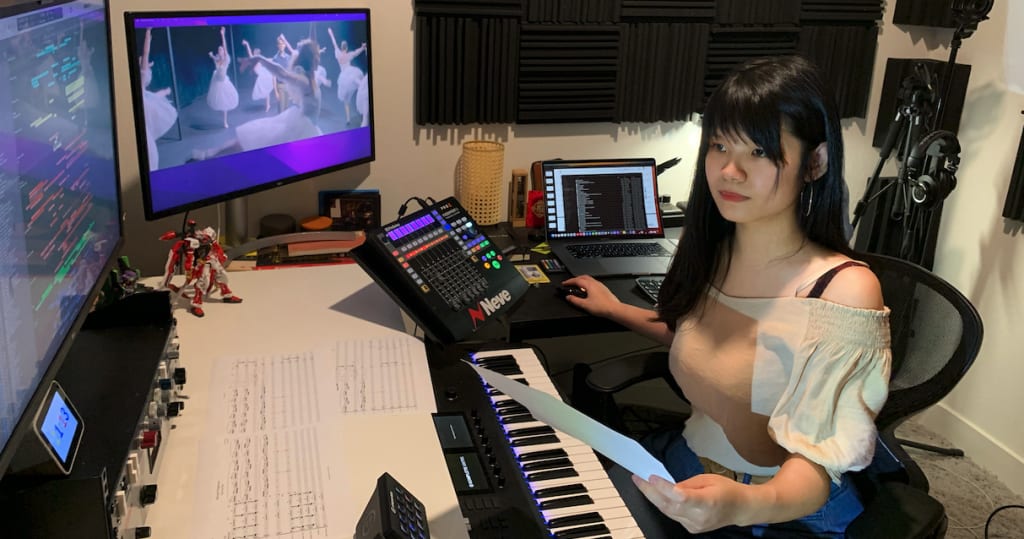
“We asked Yi-Chen to do a number of difficult things, one of which was to deliver the scores of the films dance sequences before production began. When we got the first drafts of those scores, we immediately knew that we were onto something and they deserved to be recorded. Part of her challenge was to pay homage to the style of classic Hollywood musicals. The authenticity and approachability of the score was key to the success of Dancing Man.”—Robert Steven Mack, co-director, writer and producer for the film Dancing Man,
Yi-Chen Chiang is an award-winning composer, who recently won the First Prize at the 2023 Caneres International Music Competition, Vienna, in the (music) Composition category for the romance-drama The Faithful Heart. And, she’s earned other accolades composing for a variety of movie genres. But her innovative work for the dance-drama movie Dancing Man, which pays homage to the classic dance-comedy Singin’ in the Rain, allowed her to reverse many regular ways of adapting a score to a film. Plus, her outstanding creative work on Dancing Man has been recognized for Best Score/Composition, Montage Film Festival 2023, and Best Local Film, Grand Bloomington Indiana Film Festival 2023. The film is still on the festival circuit attracting attention, its soundtrack composed by Yi-Chen will soon be released on its own through Petrichor Records, and there are plans to turn the project into a feature-length film.
Born in Taipei, Taiwan, Yi-Chen has been deeply involved in music since she first played piano at age four, and began writing music with classical training at age eleven. Of Dancing Man, she says, “I was already a big fan of Gene Kelly’s Singin’ in the Rain, and that style happened to be exactly what co-director Robert Steven Mack wanted to emulate in Dancing Man. I learned a lot from re-watching that wonderful movie about how to navigate a scene with clashing themes, where the setting might express one idea but the dancer/character is feeling something entirely different internally. Overall, with Dancing Man, the choreography had to be designed to match my music, which felt like a completely backwards process, where my music inspired the visuals rather than the other way around.”
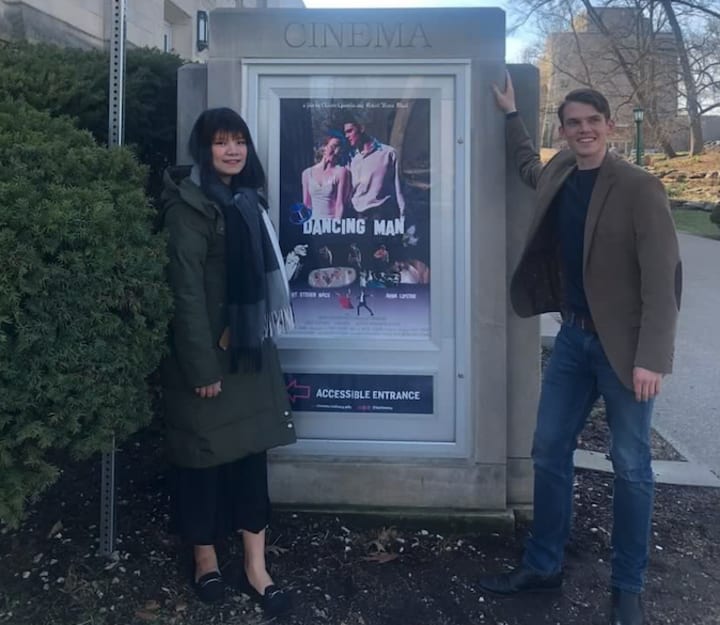
Yi-Chen has been accumulating accolades including: she has previously won other awards like the prestigious Jon Vickers Film Scoring Award and she was winner of Best Score/Composition at Montage Film Festival (2023). And two celebrated films she scored, Lanny and The Limbo’s Voyage, have both earned numerous Official Selections at festivals worldwide.
Now based in Los Angeles, Yi-Chen can been seen traipsing downtown to work, with headphones on, constantly listening to music, with a 5-line staff notebook ready in her bag to jot down musical notes and themes. She slowed down her busy schedule, and her other life as an accomplished Music Editor at Craigman Digital, to talk about the challenges and joys of working on Dancing Man.
—When did you come into the process of composing music, at the script level?
—The script was already written, but the film hadn’t actually been shot yet, which is unusually early for a composer to be brought in. When I write music for a film, I discuss with the director what’s happening in every single scene and what is important to express to the audience. Robert, the co-director of Dancing Man, told me he wanted a full orchestra for a lush sound, and that just happens to be one of my specialties. Thanks to my experience and my tight communication with Robert, I was able to write music that would help the choreographer Chris Lingner perfect the dance sequences, which were hugely important to the core of the film. In fact, because the choreography had to be designed to match my music, I scored the dancing scenes first. After they finished shooting, I scored the rest of the film.
—Could you tell us more about the collaborative aspect of filmmaking from the composer’s perspective?
—As I mentioned, and like with any film project, I immediately worked directly with Robert to decide what tone to set for the film, and where to find my inspiration. Interestingly, the co-director Clarisse Gamblin wrote a short melody that she wanted to represent the lead female character Gabrielle. She sent me a short recording and, with some minor adjustments to fit different tempos and keys, I worked very carefully to integrate it into the score. I love when I can work this closely with directors, as it really enforces the collaborative nature of filmmaking.
—Explain how Mack saw the music as a “character” in the movie?
—I think this was almost implicitly understood between myself and Robert, as a movie like Dancing Man would never work without just the right score. The music is of course what the dancers have to move to, but it also dances along with them. Each of the three main characters have their own exclusive theme in the music, and in order to have these characters dance together, their themes also had to weave seamlessly in and out of each other.
—Could you explain the choice to record live musicians for part of the score?
—Any trained musician can tell a live recording from a digital instrument, but what was most strikingly important to me about recording live was some of the less obvious parts of the soundscape that add to the music—the breathing of the musicians, or the way the sound travels around the room they’re in. This was especially important for one of the pieces I wrote, “Dream Sequence.” If I had used digital instruments, I would have lost the human quality that so crucially describes the main character David’s mentality in that scene. This also played a huge role in Irving Berlin’s song “After You Get What You Want, You Don’t Want It,” which was once sung by Marilyn Monroe, and which I rearranged into a big band jazz piece from the original 1920 recording. That specific sub-genre of jazz is famous for utilizing large live room recordings, and the tone would have been completely off without a real band. The drummer, Jacob Bauman, even improvised his own part over my arrangement, bringing even more life to the recording.
—How was this work different to other scoring projects?
—I had a really wonderful time as I’d never written for a highly choreographed production before Dancing Man, so the whole experience was truly fresh and unique. I had to adapt to working in what felt like a completely backwards process, where my music inspired the visuals rather than the other way around. As with any project I work on, I learned so much, and I believe I can take what I learned about writing for dance and apply it to my music for all kinds of film genres. I have a much stronger understanding of how to write music that moves with a film, not just alongside it.
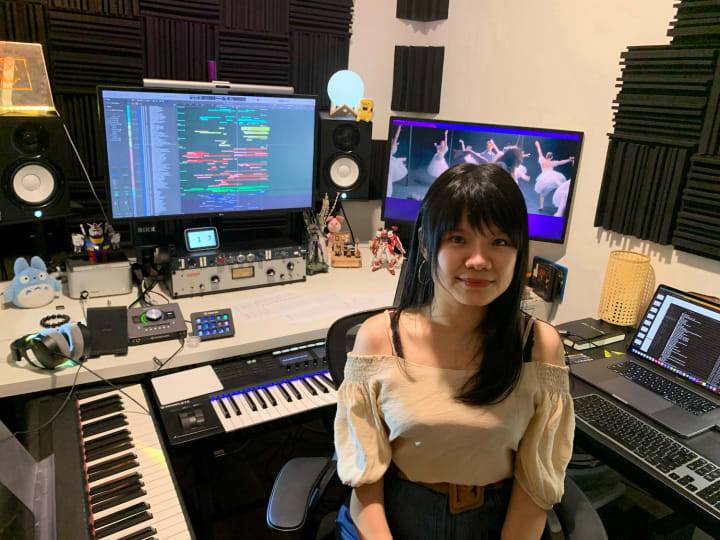
Drop in on the website for Yi-Chen Chiang, and her IMDb page. And, check out the film’s website and the first trailer and second trailer for Dancing Man.
About the Creator
ashley collie
Award-winning journalist-author-blogger has written for Playboy, Sports Illustrated, Hello! Canada, HuffPost, Medium, BBN Times, & has his novel, REJEX, available on Amazon.

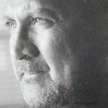
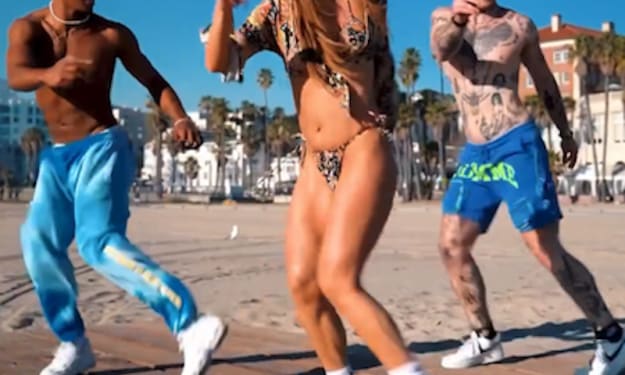



Comments
There are no comments for this story
Be the first to respond and start the conversation.